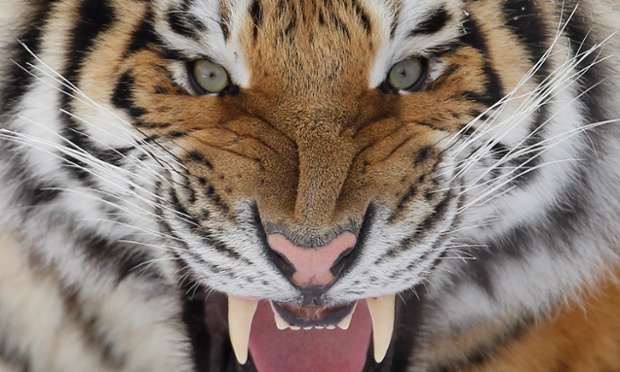
Chinese authorities have arrested a group of local politicians who were involved in illegally rearing Siberian tigers. The matter came to light after a cub jumped to his death from a 11-storey building in the eastern city of Pingdu.
Chinese media reports noted that three local politicians involved in the illegal tiger breeding were forced to resign on Thursday. Investigators found that the illegal Siberian tiger breeders raised at least 11 of the endangered wild cats.
The Chinese authorities, earlier last month during the Chinese New Year, found a Siberian cub lying dead on the road. Investigations revealed that the cub had leapt off the 11th floor of an apartment in Pingdu after getting scared by fireworks.
The three politicians from the municipal People's Congress have been fined 3,000 yuan ($626) for raising tigers without an official permit.
In China, despite the ban, tiger meat and bones remain much in demand because of their curative properties as per the traditional Chinese medicine. It is a lucrative black market, where the going rate for a tiger is said to be around 1 million yuan ($1,6148.70).
Even though China banned the consumption of tiger bone in 1993, the country still continues to have a flourishing wildlife trade market. On one hand, it has a law that bans the consumption and use of wild tiger parts; commercial breeding of these wild cats is perfectly legal.
It is estimated that there are as many as 6,000 tigers being held captive on these farms.
East Russia and China's north-east were once home to these big cats, also known as Amur tigers. The lush pine and oak forests of Manchuria was once home to hundreds of Amur tigers, but due to poaching, only a couple of dozen still survive in China.

















